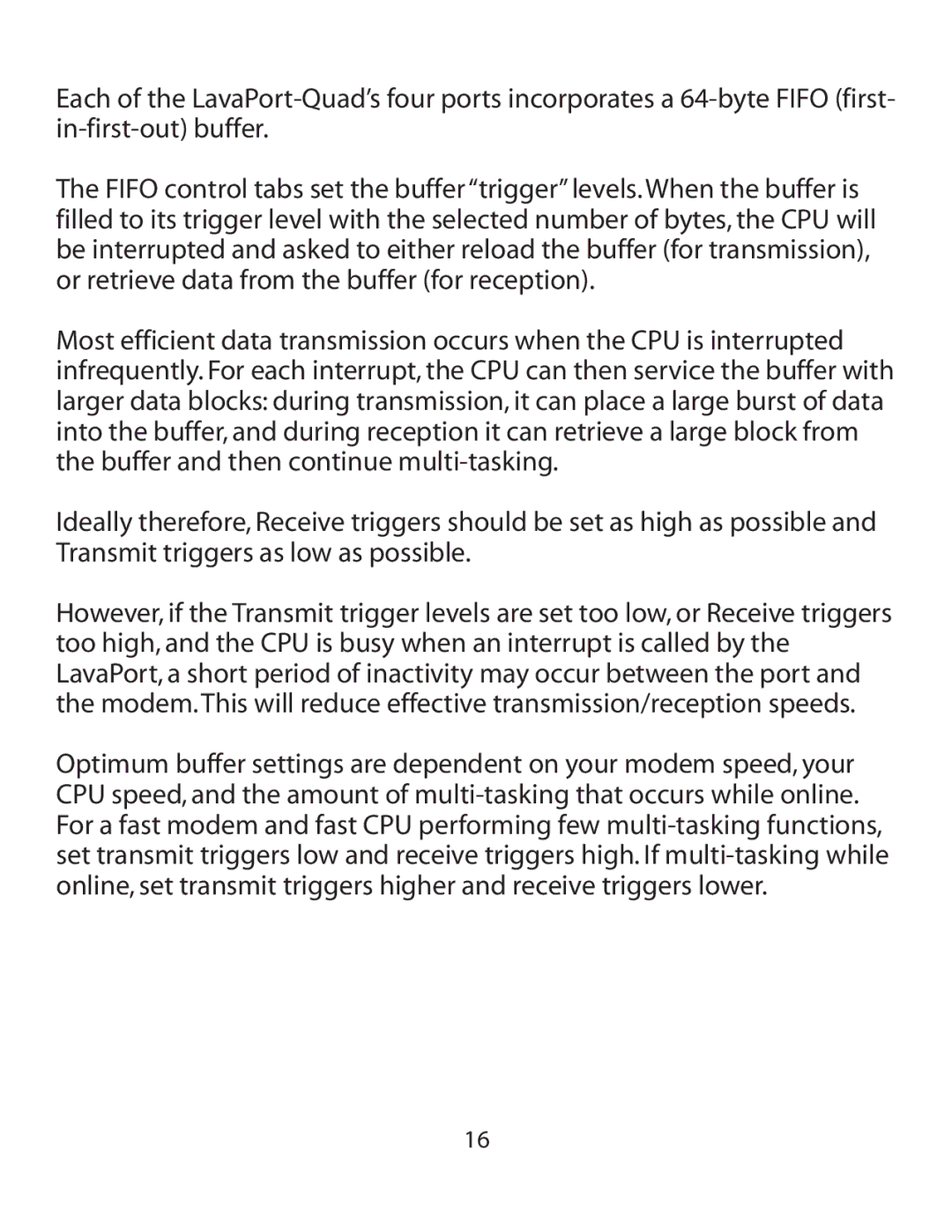Each of the
The FIFO control tabs set the buffer“trigger”levels. When the buffer is filled to its trigger level with the selected number of bytes, the CPU will be interrupted and asked to either reload the buffer (for transmission), or retrieve data from the buffer (for reception).
Most efficient data transmission occurs when the CPU is interrupted infrequently. For each interrupt, the CPU can then service the buffer with larger data blocks: during transmission, it can place a large burst of data into the buffer, and during reception it can retrieve a large block from the buffer and then continue
Ideally therefore, Receive triggers should be set as high as possible and Transmit triggers as low as possible.
However, if the Transmit trigger levels are set too low, or Receive triggers too high, and the CPU is busy when an interrupt is called by the LavaPort, a short period of inactivity may occur between the port and the modem. This will reduce effective transmission/reception speeds.
Optimum buffer settings are dependent on your modem speed, your CPU speed, and the amount of
16
